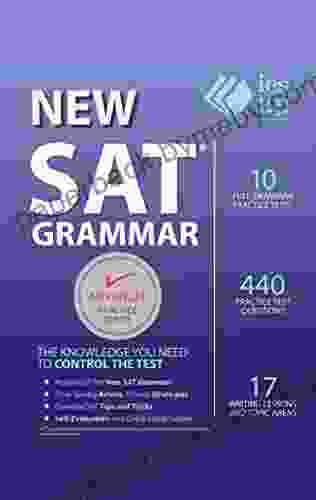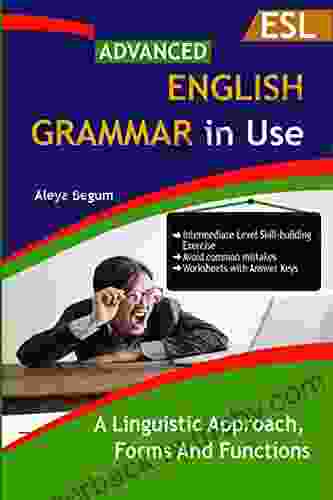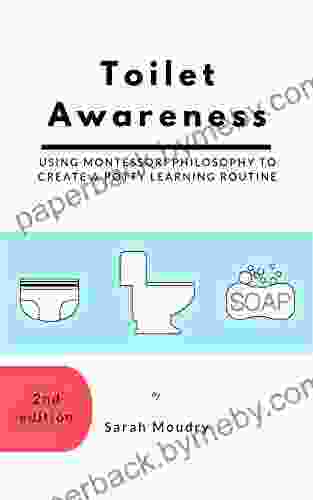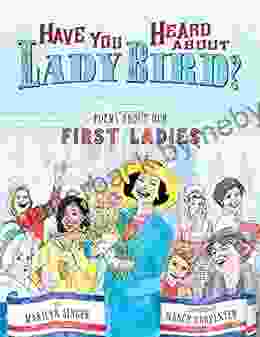Empowering Parents with Montessori Principles: A Guide to Potty Learning Success

Potty learning is an essential milestone in a child's development, but it can also be a daunting task for parents. The traditional approach of force and punishment can lead to power struggles, setbacks, and a negative association with the process. Fortunately, the Montessori philosophy offers a gentle and effective alternative that respects the child's natural rhythm and fosters their independence.
4.2 out of 5
| Language | : | English |
| File size | : | 942 KB |
| Text-to-Speech | : | Enabled |
| Screen Reader | : | Supported |
| Enhanced typesetting | : | Enabled |
| Word Wise | : | Enabled |
| Print length | : | 39 pages |
| Lending | : | Enabled |
Understanding the Montessori Approach
The Montessori method is an educational philosophy developed by Dr. Maria Montessori in the early 20th century. Based on the principle of "following the child," it emphasizes observation, respect for the individual, and a prepared environment that supports the child's natural development.
In the context of potty learning, the Montessori approach focuses on:
- Respecting the child's readiness: Montessori believed that children become ready for potty training at different stages. Parents should not rush the process and wait until their child shows signs of readiness, such as staying dry for longer periods or showing an interest in the toilet.
- Creating a supportive environment: The environment should be designed to make potty learning easy and accessible for the child. This includes having a low, child-sized potty, a step stool, and a mirror at the child's level.
- Empowering the child: Montessori emphasized the importance of encouraging children to do things for themselves. This means giving them the opportunity to use the potty independently, even if there are accidents along the way.
Step-by-Step Montessori Potty Learning Routine
The following step-by-step routine provides a practical guide for parents using the Montessori approach to potty learning:
- Observe your child: Pay attention to your child's cues that indicate they may be ready for potty learning, such as staying dry for longer periods, showing interest in the toilet, or pulling at their diaper.
- Introduce the potty: Place a low, child-sized potty in a convenient location and let your child explore it. Allow them to sit on the potty fully clothed at first, and gradually introduce the idea of using it to go potty.
- Encourage independence: Let your child use the potty independently, even if there are accidents. Provide them with a step stool and a mirror at the child's level to support their efforts.
- Celebrate successes: Praise your child for every attempt to use the potty, regardless of the outcome. This will help them to develop a positive association with the process.
- Be patient and consistent: Potty learning takes time and patience. Don't get discouraged by setbacks, and continue to provide a supportive environment for your child.
Benefits of Using the Montessori Approach
The Montessori approach to potty learning offers numerous benefits for both children and parents:
- Fosters independence: By empowering children to use the potty independently, the Montessori approach promotes their self-esteem and sense of accomplishment.
- Respects the child's natural rhythm: Montessori believed that children should be allowed to develop at their own pace. This approach reduces stress for both children and parents.
- Creates a positive relationship: Potty learning can be a time of bonding and cooperation between parent and child. The Montessori approach fosters a positive relationship by respecting the child's autonomy and celebrating their successes.
The Montessori philosophy provides a gentle and effective approach to potty learning that respects the child's natural rhythm and fosters their independence. By following the step-by-step routine outlined in this guide, parents can empower their children to achieve potty learning success and develop a positive relationship with their bodies.
4.2 out of 5
| Language | : | English |
| File size | : | 942 KB |
| Text-to-Speech | : | Enabled |
| Screen Reader | : | Supported |
| Enhanced typesetting | : | Enabled |
| Word Wise | : | Enabled |
| Print length | : | 39 pages |
| Lending | : | Enabled |
Do you want to contribute by writing guest posts on this blog?
Please contact us and send us a resume of previous articles that you have written.
 Book
Book Novel
Novel Page
Page Chapter
Chapter Text
Text Story
Story Genre
Genre Reader
Reader Library
Library Paperback
Paperback E-book
E-book Magazine
Magazine Newspaper
Newspaper Paragraph
Paragraph Sentence
Sentence Bookmark
Bookmark Shelf
Shelf Glossary
Glossary Bibliography
Bibliography Foreword
Foreword Preface
Preface Synopsis
Synopsis Annotation
Annotation Footnote
Footnote Manuscript
Manuscript Scroll
Scroll Codex
Codex Tome
Tome Bestseller
Bestseller Classics
Classics Library card
Library card Narrative
Narrative Biography
Biography Autobiography
Autobiography Memoir
Memoir Reference
Reference Encyclopedia
Encyclopedia Susan Braudy
Susan Braudy Kersten Hamilton
Kersten Hamilton Margaret Leslie Davis
Margaret Leslie Davis Oscar Baechler
Oscar Baechler Stef Smulders
Stef Smulders Robin Varnum
Robin Varnum Kevin Poulsen
Kevin Poulsen Tara Teaspoon
Tara Teaspoon Warwick Deeping
Warwick Deeping Peter D Shay
Peter D Shay Rebecca Bielawski
Rebecca Bielawski Nicole Jardim
Nicole Jardim Ken Light
Ken Light Kent Garrett
Kent Garrett Marci Aurila
Marci Aurila Matt Appling
Matt Appling Kerstin Gier
Kerstin Gier Scott Coplan
Scott Coplan Kendra Wilkinson
Kendra Wilkinson Siri Hustvedt
Siri Hustvedt
Light bulbAdvertise smarter! Our strategic ad space ensures maximum exposure. Reserve your spot today!

 Jack ButlerStars, Stats, Records, and Memories: For True Diehards - So You Think You're...
Jack ButlerStars, Stats, Records, and Memories: For True Diehards - So You Think You're...
 George R.R. MartinMaster the SAT Grammar: Advanced Practice with the New Sat Grammar Workbook
George R.R. MartinMaster the SAT Grammar: Advanced Practice with the New Sat Grammar Workbook Pat MitchellFollow ·13.5k
Pat MitchellFollow ·13.5k Osamu DazaiFollow ·2.2k
Osamu DazaiFollow ·2.2k Devin CoxFollow ·3k
Devin CoxFollow ·3k Jacques BellFollow ·10.5k
Jacques BellFollow ·10.5k Gabriel HayesFollow ·13.6k
Gabriel HayesFollow ·13.6k David BaldacciFollow ·10.2k
David BaldacciFollow ·10.2k Octavio PazFollow ·16.8k
Octavio PazFollow ·16.8k Oscar WildeFollow ·9.6k
Oscar WildeFollow ·9.6k

 Isaac Asimov
Isaac AsimovEmbark on an Epic Adventure: The Colorado Trail 9th...
Unveiling the Treasures of the Colorado...

 Clinton Reed
Clinton ReedUltimate Football Heroes: Uncover the Gridiron Greatness...
Enter the World...

 Ibrahim Blair
Ibrahim BlairUnveiling the Secrets of Stolen Focus: A Journey to...
In today's relentless digital...

 Colt Simmons
Colt SimmonsRediscover the Founding Father's Vision: Thomas Jefferson...
Immerse Yourself in the Unedited Words of...

 Juan Butler
Juan ButlerExcel in Language Learning: The Ultimate Self-Study...
Unlock Your Language Potential with Our...
4.2 out of 5
| Language | : | English |
| File size | : | 942 KB |
| Text-to-Speech | : | Enabled |
| Screen Reader | : | Supported |
| Enhanced typesetting | : | Enabled |
| Word Wise | : | Enabled |
| Print length | : | 39 pages |
| Lending | : | Enabled |










